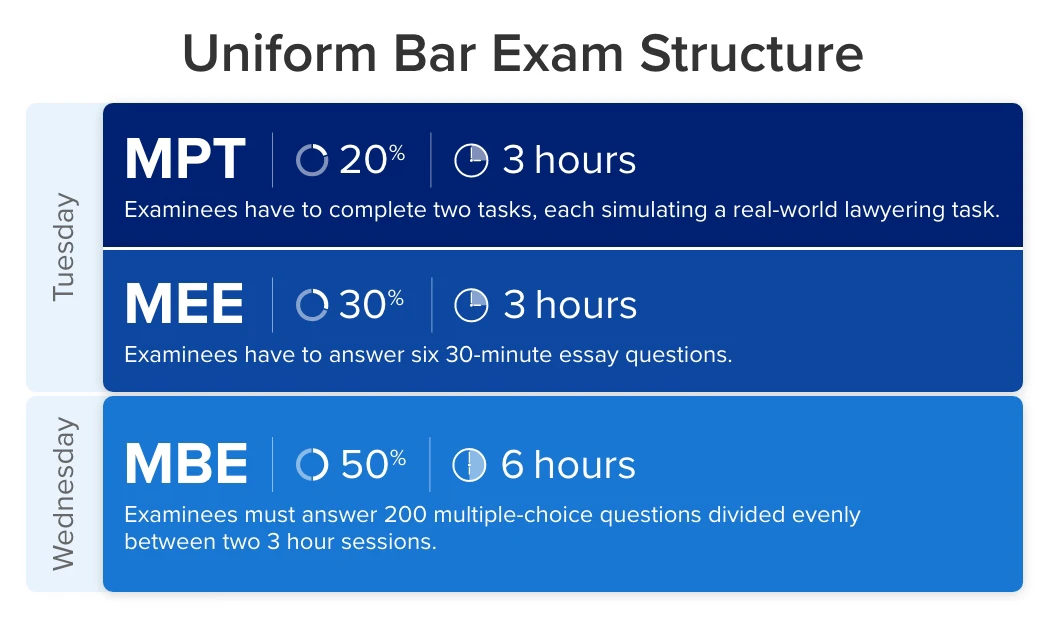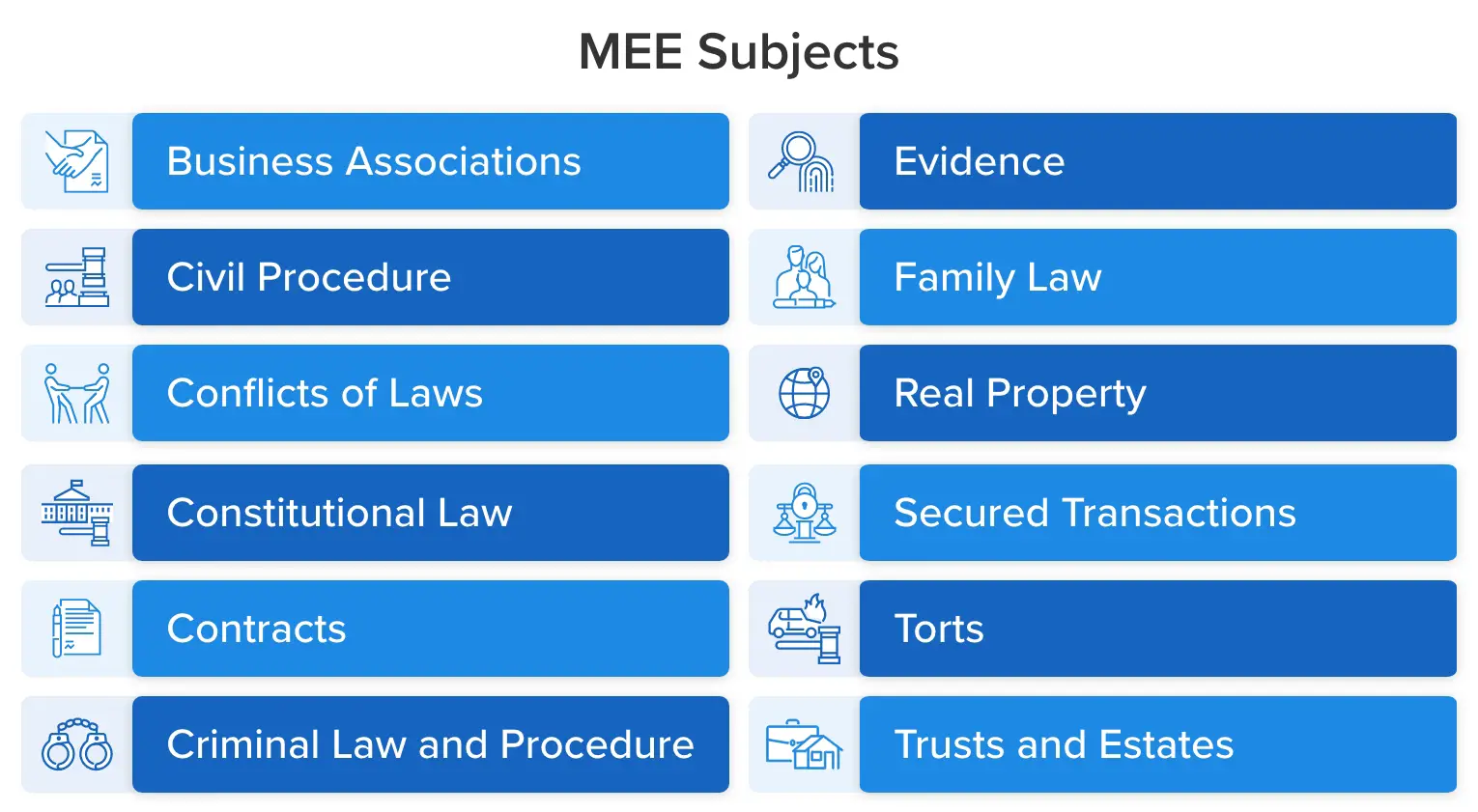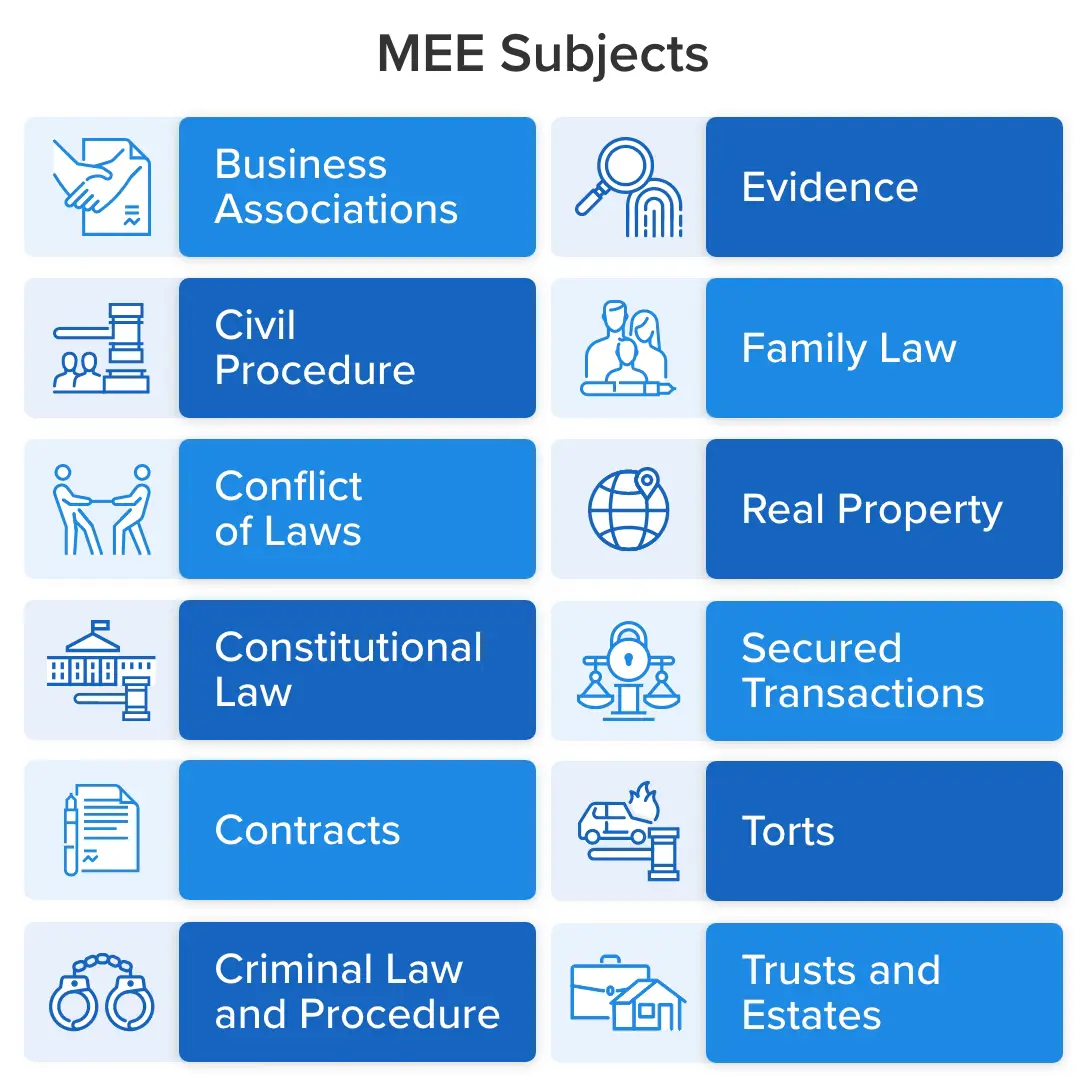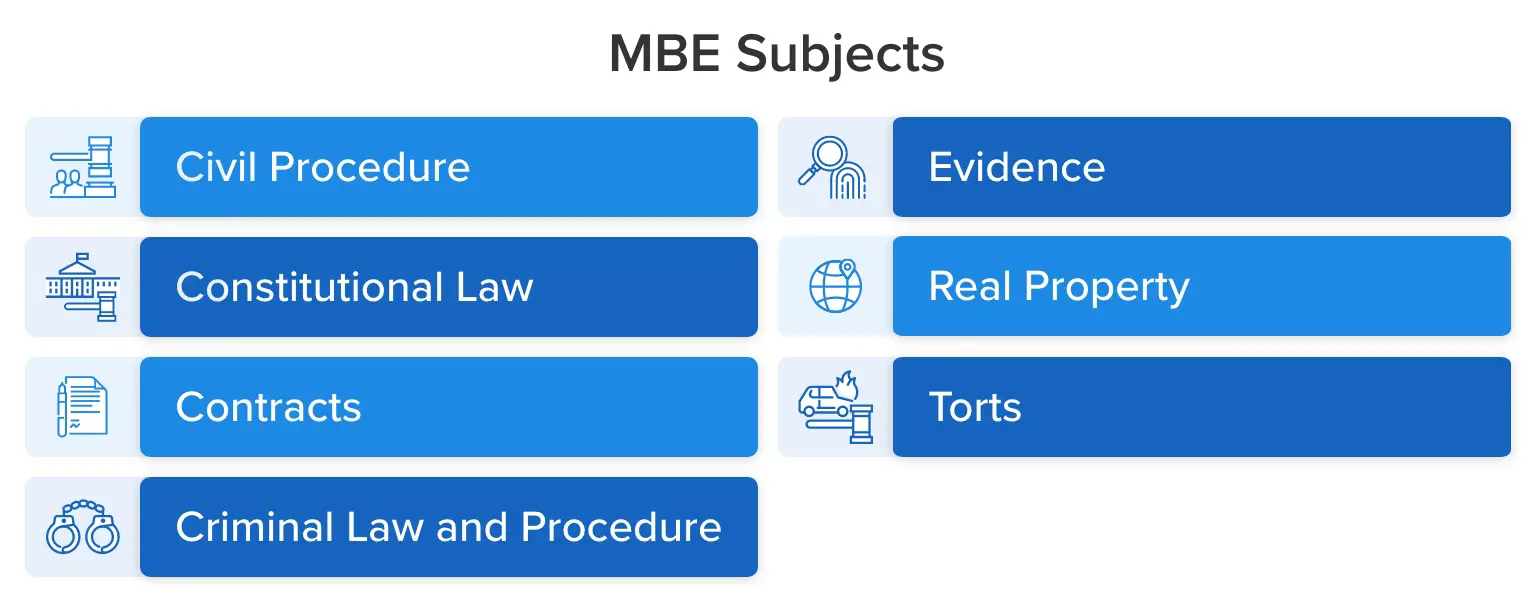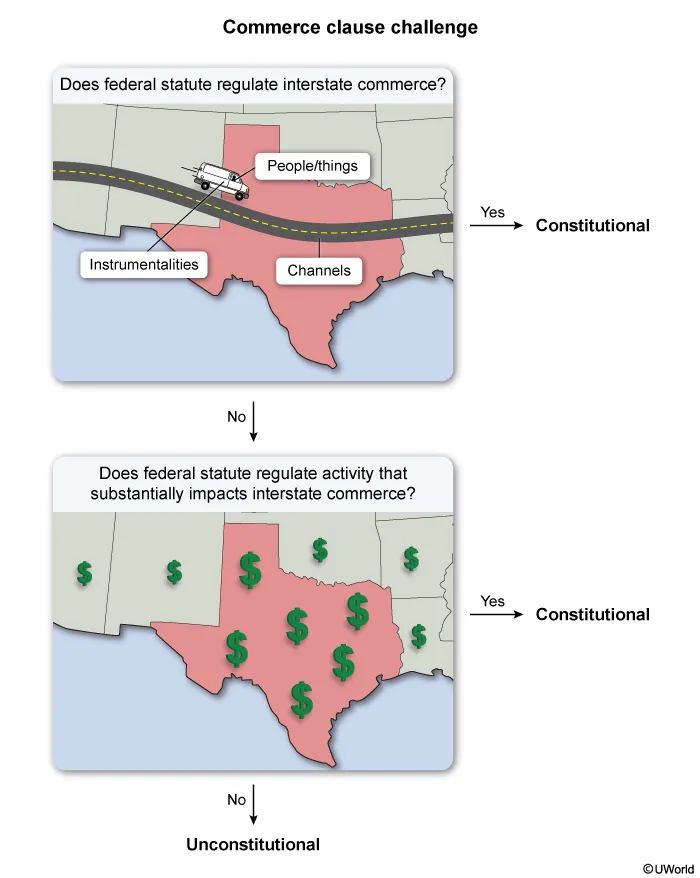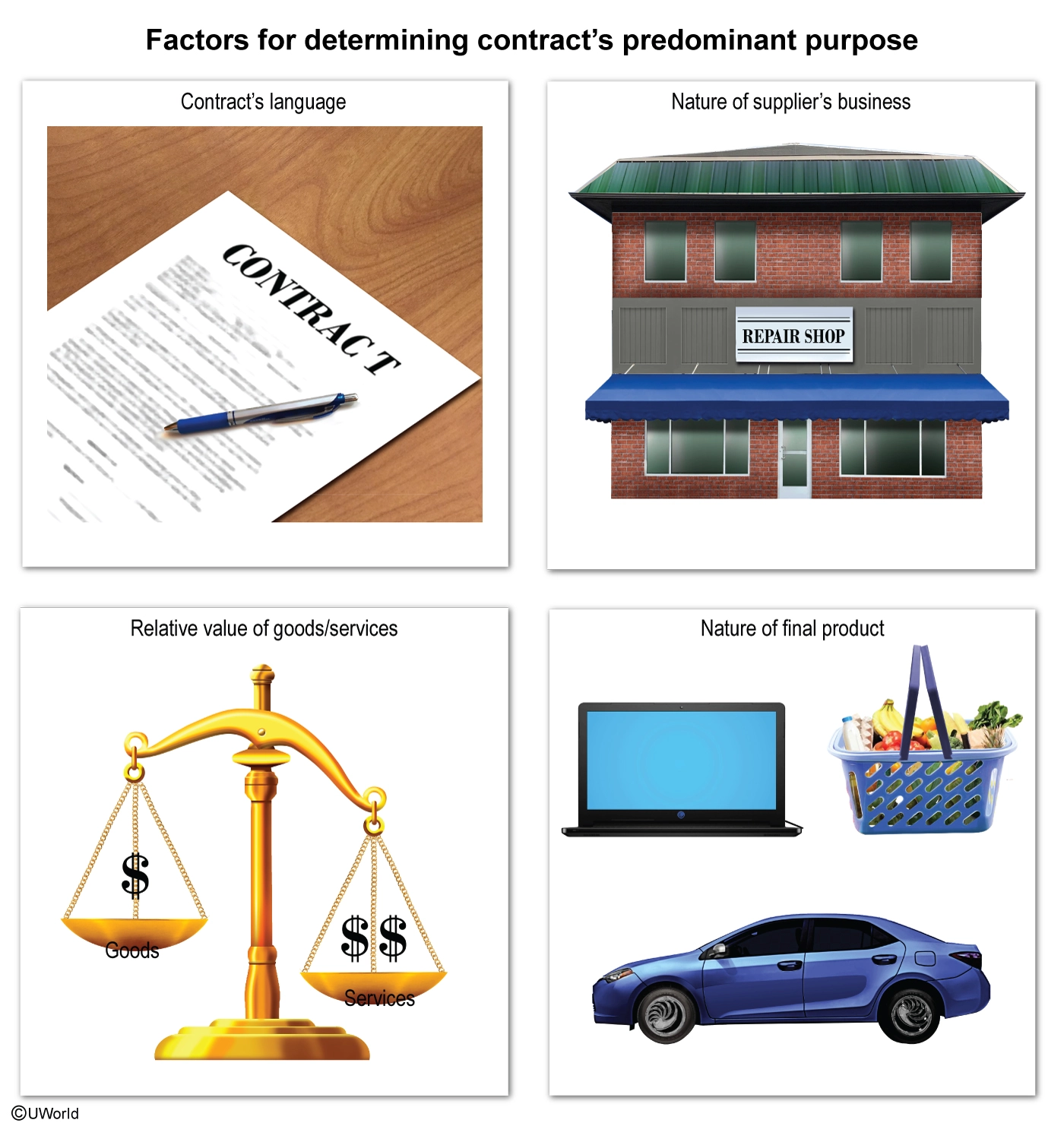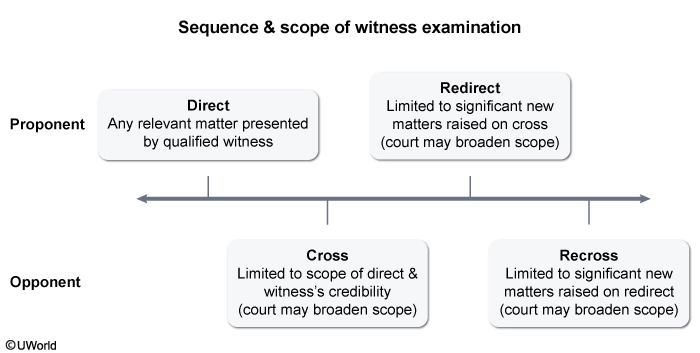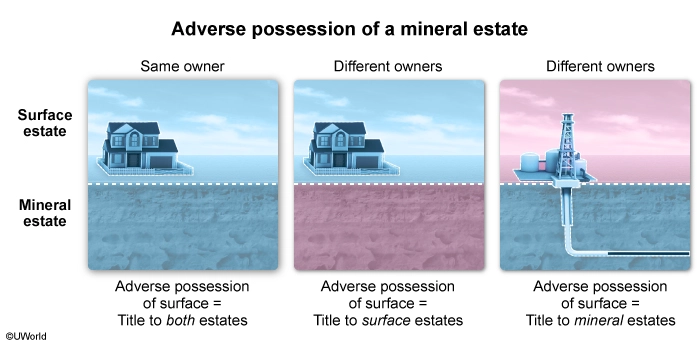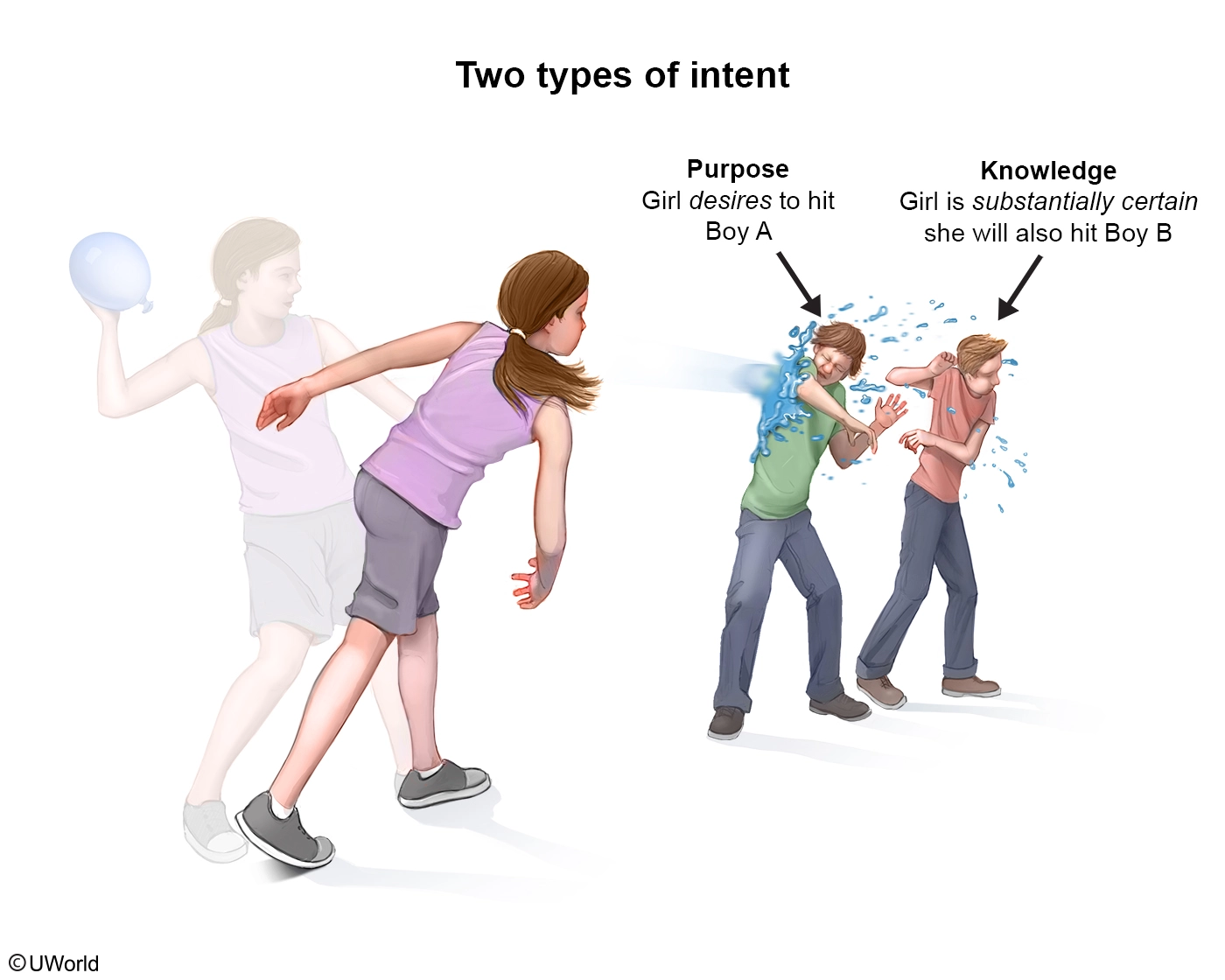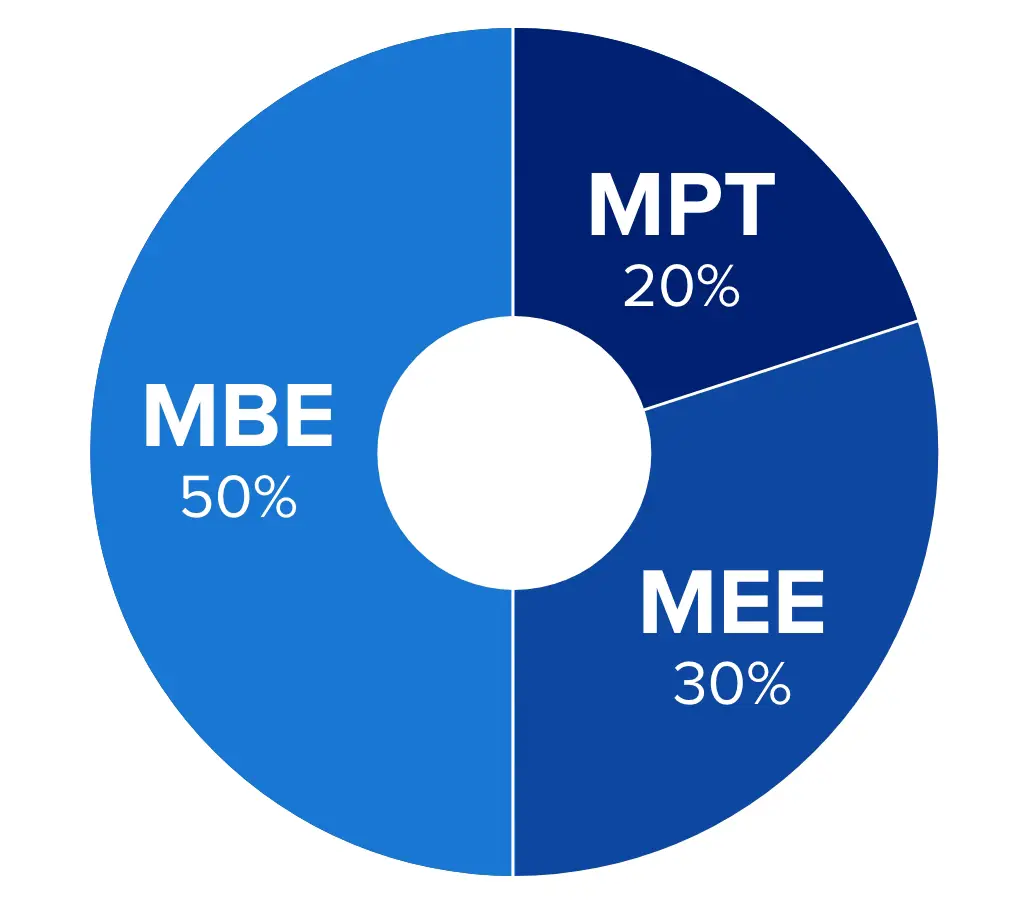The Judiciary of Vermont adopted the Uniform Bar Examination (UBE®) in July 2016. The UBE is a standardized bar examination comprised of the Multistate Bar Examination (MBE®), the Multistate Essay Examination (MEE®), and the Multistate Performance Test (MPT®).
Uniformity among participating states has made interstate score transfer much easier. This article will provide detailed information on VT Bar Exam dates, format, subjects, costs, results, and more.
In January 2024, Vermont announced that it will replace the UBE with the NextGen Bar Exam beginning July 2027.
Vermont Bar Exam Structure
The UBE is divided into 2 days, each with 6 testing hours. The writing portion (MPT/MEE) is administered on day one, and the MBE on day 2. See below for a detailed breakdown.
Vermont Bar Exam Dates, Requirements, and Scheduling
You can't pass an exam you don't take. Mark the dates and deadlines shown below on your calendar and review the eligibility requirements below. Save yourself some stress by collecting the proper documentation and submitting your application early.
Exam dates
The Vermont Bar Exam falls on the last Tuesday and Wednesday of February and July. It's important to file for your application on or before the timely filing deadline, as Vermont has no late filing periods. You cannot sit for the exam if you do not submit your application in time. That is unless you file your late application with an official law school transcript and a written request to the Board demonstrating “extraordinary circumstances.”
| Filing Periods | February 27-28, 2024 | July 30-31, 2024 | Fee |
|---|---|---|---|
| Deadline | December 1, 2023 | May 1, 2024 | $300 |
Requirements
You must take the Vermont Bar Exam within 5 years of graduating from an ABA-accredited law school or completing the Law Office Study Program. To apply for the early examination, you must submit a transcript proving that you will have completed 5 semesters of law school (including academic instruction on each subject tested on the UBE) before taking the UBE.
If you've graduated from a non-ABA-accredited US law school, you may still apply for the VT Bar Exam if you can demonstrate that the law school you've attended was in the process of becoming accredited during the time you attended and that its accreditation has not since been denied.
Vermont is one of the few jurisdictions that offers a pathway to bar admission without attending law school. Candidates can participate in a law office study program and submit a Completion Notice to the Board. A lawyer or judge must oversee Vermont's Law Office Study Program (LOS Program), which requires that candidates study law for 25 hours a week for 4 years. A bachelor's degree from an institution accredited by the US Department of Education or a foreign equivalent is also required. To begin the process, candidates must submit the Law Office Study Registration and Law Office Study Initial Supervisor Certification forms.
Scheduling
Any path you take toward the VT Bar Exam begins with creating an account with the National Conference of Bar Examiners (NCBE®) and completing the NCBE Standard Character and Fitness Electronic Application (sample). Your Vermont Bar Exam application will be made available, along with instructions, after you have submitted the NCBE application. You must submit both your Vermont and NCBE applications together through Odyssey File and Serve.
To apply for early examination, you must have your law school send the Office of Attorney Licensing an official transcript documenting completion of the required study with a letter from the law school stating that you've received academic instruction on each UBE subject and are academically prepared for early testing. You must also graduate within 7 months of taking the UBE.
Vermont Bar Exam Cost and Fees
Vermont has relatively low application fees. See fees regarding exam application, UBE score transfer, Law Office Study registration, and more below.
| Application Fees | |
|---|---|
| Vermont Bar Exam | $300 |
| Late Filing Fee | $50 |
| Application for Admission w/o Examination | $800 |
| UBE Score Transfer | $525 |
| Non Approval Law School Equivalency Determination | $50 |
| First-Time Registration of Law Office Study | $200 |
| Fee for filing of Each Six-Month Report | $100 |
| Admin Fee for Any Application | $50 |
| Character and Fitness Report | Schedule |
Payment policies
Each application requires an additional $50 administrative fee. Application fees are non-refundable, even if your application is denied.
Cost-saving options
Attending law school and applying for the bar exam isn't cheap. Fortunately, there are cost-saving options available to eligible candidates. For example, Vermont Law & Graduate School offers scholarships and grants based on merit, needs, and opportunity.
Most of the scholarships above are for current or soon-to-be law students. Try browsing the AccessLex Institute Law School Scholarship Databank for options better suited to you. You can also check out the American Bar Association's (ABA) website, which offers 100+ opportunities and programs for young lawyers and law students. Even if you can't obtain a scholarship, you can do some basic things to save money while preparing for the bar exam:
- Join a study group and split the cost of bar exam preparation materials among group members.
- Research free or low-cost study online study materials like past bar exam questions and answers to supplement commercial study aids.
- Some bar exam prep companies offer discounts or promotions to students who register early or refer friends to their program.
Vermont Bar Exam Subjects and Topics
The VT Bar Exam tests a candidate's legal knowledge, analytical skills, and competence to practice law. It covers a range of subjects, from Constitutional Law and Contracts to Criminal Law and Evidence. Candidates will be assessed by their ability to apply legal principles, draft legal documents, and effectively solve problems to ensure they can competently represent clients and complete entry-level legal tasks.
Testable subjects on the MEE
The MEE requires candidates to identify legal issues, apply relevant legal principles, and demonstrate their ability to analyze fact patterns and compose well-reasoned, organized, and concise written responses. MEE subjects include:
Some subjects may be tested together. Others may not be tested at all. What subjects the NCBE chooses for any administration are not made public before the exam. Historically, some have been tested more often than others historically. For example, Civil Procedure has been tested on almost every MEE for the past 10 years, while Criminal Law has only appeared a few times. However, subjects that occur less frequently may still be paired with others.
Check out our MEE Study Guide for details on planning your studies and determining what's essential so you use your time efficiently. Also, check out our MEE Subject Matter Outline for in-depth explanations of MEE subjects and sub-topics.
MPT: Testable items
The MPT is designed to test an examinee's "lawyering skills" using only the materials provided. These tasks are conducted in a closed-universe, fictional jurisdiction called "Franklin." The laws of the real world do not apply, so your critical thinking skills and understanding of fundamental legal principles are key. You'll receive faux reference material, which you'll use to solve two tasks, each graded on a scale from 0 to 6.
Testable subjects on the MBE
The MBE contains 200 multiple-choice questions divided evenly over 7 subjects. You'll notice that 7 x 25 does not equal 200. That's because 25 MBE questions are unscored questions that the NCBE field tests for future exams. There is no way to identify which questions are scored or unscored, so it's best to imagine that they are all just as important. MBE subjects are as follows:
UWorld MBE Sample Questions
A husband and wife were married in State A and lived there for 10 years before separating. One month later, the wife permanently moved to State B and immediately filed for divorce in a federal court in State B. The wife claims that she is entitled to $300,000 in alimony. The husband appeared in the action and has filed a motion to dismiss for lack of subject-matter jurisdiction.
Should the court grant the motion?
- No, because the court has diversity jurisdiction over the case.
- No, because the husband waived a subject-matter jurisdiction challenge by appearing in the case.
- Yes, because state courts have exclusive jurisdiction over this type of action.
- Yes, because the wife did not establish a domicile in State B.
Explanation:
| Federal diversity jurisdiction exceptions |
|
Federal courts cannot exercise diversity jurisdiction over cases involving:
|
A federal court must possess subject-matter jurisdiction to hear the merits of a case before it. Subject-matter jurisdiction can be established through either:
- federal-question jurisdiction – when a claim arises under the U.S. Constitution, a treaty, or federal law (not seen here) or
- diversity jurisdiction – when the amount in controversy exceeds $75,000 and the opposing parties are citizens of different states.
Here, diversity jurisdiction is established since the wife claims that she is entitled to $300,000 and the parties are citizens of different states (States A and B). However, federal courts cannot exercise diversity jurisdiction over cases involving probate matters or domestic relations. Instead, state courts have exclusive jurisdiction over these types of actions (Choice A).* Therefore, the husband's motion to dismiss should be granted.
(Choice B) A challenge to subject-matter jurisdiction is never waived. However, a challenge to personal jurisdiction is waived if the defendant has voluntarily appeared in the case, unless it was a special appearance for the express purpose of objecting to personal jurisdiction.
(Choice D) An individual is a citizen of the state where he/she is domiciled—ie, physically present with the intent to remain indefinitely. Since the wife permanently moved to State B, she has established her domicile there.
Educational objective:
Federal courts cannot exercise diversity
jurisdiction over cases involving probate matters or domestic relations. Instead, state courts
have exclusive jurisdiction over these types of cases.
Bluebook Citations :
- Ankenbrandt v. Richards, 504 U.S. 689, 703–04 (1992) (explaining the domestic-relations exception to diversity jurisdiction).
A congressional committee investigated the pharmaceutical industry and found that the high cost of prescription drugs purchased and sold in the United States negatively impacted the nation's economy and the health of its citizens. In response, Congress passed a statute that regulates "the retail prices of every purchase or sale of prescription drugs in the United States."
A group of pharmaceutical companies challenged the constitutionality of this statute in federal court.
What is the strongest argument in support of the constitutionality of this statute?
- Congress may enact statutes for the general welfare.
- Congress may regulate the prices of all domestic purchases and sales of goods.
- The Constitution grants Congress the power to regulate the interstate transportation of prescription drugs.
- The purchases and sales of prescription drugs in the United States substantially impact interstate commerce in the aggregate.
Explanation:
The commerce clause gives Congress broad power to regulate interstate and foreign commerce. This includes:
- the channels of interstate and foreign commerce (eg, roadways)
- the instrumentalities of interstate and foreign commerce (eg, vehicles)
- persons and things moving in interstate or foreign commerce (eg, goods and services) and
- in-state activities that, singly or in the aggregate, substantially impact interstate or foreign commerce.
Since Congress's commerce power is broad, federal statutes are constitutional if there is any rational basis for concluding that the regulated activity substantially affects interstate or foreign commerce. This can be shown through express congressional findings.
Here, the federal statute regulates the retail prices of prescription drugs in the United States. Congress has the authority to regulate such products' interstate transportation, but this statute also regulates in-state purchases and sales (Choice C). Since the congressional committee found that the high cost of prescription drugs negatively impacted the nation's economy, it is rational to conclude that their aggregated in-state purchases and sales substantially impact interstate commerce. Therefore, this is the strongest argument to support this statute.
(Choice A) The taxing and spending clause empowers Congress to tax and spend for the general welfare. But regulating prices is not equivalent to taxing or spending.
(Choice B) Congress cannot regulate the prices of every domestic purchase and sale of goods since it cannot regulate purely in-state sales that do not substantially affect interstate commerce.
Educational objective:
The commerce clause empowers Congress to regulate (1)
channels and instrumentalities of, (2) persons and things moving in, and (3) in-state activities
that—singly or in the aggregate—substantially affect interstate or foreign commerce.
Bluebook Citations :
- Gonzales v. Raich, 545 U.S. 1, 17 (2005) (explaining Congress's broad authority under the commerce clause).
The owner of a new office building contracted with a well-known landscaper to design and install landscaping around the building for $30,000. The agreement was memorialized in writing, was signed by both parties, and called for a budget of $5,000 for trees, shrubs, sod, and materials. The contract required the landscaper to complete the work within six months. Due to an unexpected increase in the price of trees and shrubs, the landscaper abandoned the project and never completed any of the work.
Three years after the landscaper's deadline, the building owner sued the landscaper for breach of contract. In the jurisdiction, the statute of limitations for breach of a services contract is two years after the breach, and the statute of limitations for breach of a sale-of-goods contract is four years.
Can the owner recover damages from the landscaper?
- No, because the contract is divisible with respect to the services and goods, and the landscaper's breach is therefore subject to the two-year statute of limitations.
- No, because the contract primarily calls for services, and the landscaper's breach is therefore subject to the two-year statute of limitations.
- Yes, because the landscaper's breach was a result of an increase in the price of goods, and his breach is therefore subject to the four-year statute of limitations.
- Yes, because the landscaper's breach was willful, and he is therefore estopped from denying that his breach is subject to the four-year statute of limitations.
Contracts for the sale of goods are governed by Article 2 of the Uniform Commercial Code (UCC), while contracts for services are governed by common law. However, some contracts involve the sale of goods and the rendering of services. To determine which law applies to a "mixed" or "hybrid" contract, courts ask whether its predominant purpose was the sale of goods or the rendering of services. The following factors are relevant to this determination:
- The contract's language
- The nature of the supplier's business (ie, whether it typically provides goods or services)
- The relative value of the goods and services
- The nature of the final product (ie, whether it can be described as a good or service)
Here, the building owner contracted to buy goods (eg, trees, shrubs, sod) and services (ie, designing and installing the landscaping). The owner likely hired the well-known landscaper due to his skill in performing landscaping services, and the $5,000 budget for goods was just one-sixth of the $30,000 contract price. Therefore, the contract primarily calls for services and is subject to the jurisdiction's two-year statute of limitations. And since the owner sued three years after the breach, the owner cannot recover damages from the landscaper.
(Choice A) The predominant-purpose test is unnecessary when a contract is divisible—ie, when the payment for goods can easily be separated from the payment for services. But here, the contract is likely indivisible since it combined the sale of the trees, shrubs, and sod with their installation.
(Choices C & D) The predominant-purpose test focuses on the parties' reason for entering the contract—not for breaching it. Therefore, it is irrelevant that the landscaper's breach was (1) a result of an increase in the price of goods or (2) willful.
Educational objective:
Sale-of-goods contracts are governed by the UCC,
while services contracts are governed by common law. When a contract calls for the sale of goods
AND the rendering of services, the contract's primary purpose determines whether the UCC or
common law applies.
Bluebook Citations :
- Bonebrake v. Cox, 499 F.2d 951, 960 (8th Cir. 1974) (applying the predominant-purpose test to determine which statute of limitations applies to a mixed contract for goods and services).
- Princess Cruises, Inc. v. Gen. Elec. Co., 143 F.3d 828, 833 (4th Cir. 1998) (listing factors that courts consider when applying the predominant-purpose test).
A man and a woman dated for several weeks. During that time, the man repeatedly asked the woman to have sex. Each time, the woman responded that she would not have sex with the man unless they were married. One evening, the man promised the woman that they would elope the following weekend if she would agree to have sex. The woman agreed and the couple had sex. The following weekend, the man told the woman that he had no intention of eloping and only made that promise to get the woman's consent. The woman reported the man to the police, who later arrested and charged the man with rape.
Is the man guilty of rape?
- No, because fraud in factum did not negate the woman's consent.
- No, because fraud in the inducement did not negate the woman's consent.
- Yes, because the woman's consent was obtained by fraud in factum.
- Yes, because the woman's consent was obtained by fraud in the inducement.
Explanation:
| Consent to sexual intercourse obtained by fraud | ||
| Type of fraud | Definition | Effect |
| In factum |
|
Negates victim's consent |
| In inducement |
|
Does not negate victim's consent |
In most modern jurisdictions, rape is defined as sexual intercourse with another without that person's consent.* This means that rape did not occur if the victim consented to sexual intercourse. However, a victim's consent may be ineffective if it was obtained by fraud. There are two types of fraud:
- Fraud in factum – when consent is obtained by fraud regarding the nature of the act itself, leaving the victim unaware that he/she consented to sexual intercourse and negating the victim's consent
- Fraud in the inducement – when consent is obtained by fraud regarding what the victim knows is an act of sexual intercourse, which does not negate the victim's consent
As a result, consent obtained by fraud in factum is not a valid defense to rape, but consent obtained by fraud in the inducement is a valid defense.
Here, the man falsely promised the woman that they would elope if she agreed to have sex with him. Since the woman knew that the act to which she consented was sexual intercourse, her consent was obtained by fraud in the inducement (Choices A & C). This type of fraud did not negate the woman's consent, so the man is not guilty of rape (Choice D).
Educational objective:
Fraud in factum occurs when the fraud pertains to the nature of the act itself and negates a rape victim's consent. In contrast, fraud in the inducement occurs when fraud is used to gain consent to what the victim knows is an act of sexual intercourse and does not negate the victim's consent.
A plaintiff sued a defendant for negligence to recover damages that the plaintiff suffered as a result of a crash between the two parties. At trial, the plaintiff's attorney called the plaintiff's wife to testify as to what she witnessed on the day of the crash. On cross-examination of the wife, the defendant's lawyer elicited several responses that tended to show that the plaintiff's actions constituted contributory negligence. The plaintiff's attorney seeks to ask the wife several questions on redirect examination, but the defendant's attorney objected.
What is the strongest argument that the court must allow redirect examination of the wife?
- The plaintiff's attorney failed to provide all significant information on direct examination.
- The plaintiff's attorney seeks to reiterate the necessary elements of the claim.
- The plaintiff's attorney seeks to reply to all matters raised on cross-examination.
- The plaintiff's attorney seeks to reply to significant new matters raised on cross-examination.
Explanation:
Federal Rule of Evidence 611 gives trial courts the authority to exercise reasonable control over the mode and order of examining witnesses at trial. This includes the discretion to determine whether—and to what extent—redirect examination of witnesses should be permitted. But when a party raises a significant new matter while cross-examining a witness, the court must allow the opposing party to address that matter through redirect examination.
Therefore, the strongest argument for allowing redirect examination of the plaintiff's wife is that the plaintiff's attorney seeks to reply to significant new matters that were raised on cross-examination.
(Choice A) A party is expected to elicit all significant information during direct examination of a witness. Therefore, a court need not permit redirect examination to allow the party to provide information inadvertently omitted on direct examination.
(Choices B & C) Redirect examination is generally limited to significant new matters raised on cross-examination. Therefore, a party is not entitled to redirect examination to (1) reiterate information like the necessary elements of the claim or (2) reply to all matters addressed in cross-examination.
Educational objective:
When a party raises a significant new matter on cross-examination of a witness, the court must allow redirect examination by the opposing party to address that matter.
Bluebook Citations :
- Fed. R. Evid. 611 (explaining the mode and order of examining witnesses).
Twenty years ago, a man who owned a 20-acre ranch agreed to sell all of his mineral rights to his neighbor. The man executed a warranty deed conveying the mineral estate to the neighbor, who failed to record the deed.
The following year, a woman moved her mobile home onto an undeveloped five-acre portion of the man's ranch. After the woman had lived on the property for 10 years, a local drilling company began operations on a nearby tract to drill a natural gas well. Believing that the woman owned the property, the drilling company approached the woman about leasing the mineral rights on her property and requested that the woman sign a lease of her mineral rights. The woman signed the lease as requested, and it was promptly and properly recorded. The drilling operations were successful, and the drilling company prepared to distribute profits from royalties. However, a dispute arose between the neighbor and the woman, as both parties claim ownership of the minerals.
The period of time to acquire title by adverse possession in the jurisdiction is 10 years.
In an action to determine title, is the court likely to award title to the mineral estate to the woman?
- No, because the woman actually possessed only the surface estate that had previously been severed from the mineral estate.
- No, because the woman did not actually possess the mineral estate until she signed the lease of the mineral rights.
- Yes, because the neighbor failed to record the warranty deed conveying the mineral estate.
- Yes, because the woman adversely possessed both the surface estate and the mineral estate for the statutory period.
Explanation:
An adverse possessor can acquire title to land owned by another if his/her possession of the land is:
- Open and notorious – apparent or visible to a reasonable owner
- Continuous – uninterrupted for the statutory period
- Exclusive – not shared with the owner
- Actual – physical presence on the land and
- Nonpermissive – hostile and adverse to the owner.
If the surface and mineral estates are owned by the same party, then the adverse possessor will acquire title to both estates—even if only one estate is actually possessed. But if the mineral estate has been severed from the surface estate (ie, the surface and mineral estates are owned by different parties), then the adverse possessor will only acquire title to the estate that is actually possessed. The mineral estate is actually possessed when the adverse possessor mines or drills wells on the land.
Here, the neighbor purchased the mineral estate from the man, thereby severing the mineral estate from the surface estate. And since the woman merely lived on the property for the 10-year statutory period—she did not attempt to mine or drill a well on the mineral estate—she actually possessed only the surface estate during that time (Choice D). This means that the woman did not adversely possess the mineral estate, and the court is not likely to award her title to that estate.
(Choice B) Adverse possession of a mineral estate requires the commencement of drilling or mining operations. Merely signing a lease of the mineral rights is not enough.
(Choice C) A deed need not be recorded to be valid, so the neighbor's failure to record has no impact on whether the woman adversely possessed the mineral estate.
Educational objective:
If a mineral estate has previously been severed from the surface estate (ie, surface and minerals owned by different persons), then an adverse possessor can only acquire title to the mineral estate by actually possessing the minerals (eg, by mining or drilling wells).
A teenager was riding a bicycle when she saw a classmate walking toward her. The teenager rode quickly toward the classmate, knowing that he would think she would run into him on her current trajectory. The teenager was not purposefully trying to harm or touch him. The classmate saw the teenager riding toward him and yelled at her to stop. The teenager swerved at the last moment and avoided hitting him. The classmate had a panic attack because he thought that the teenager would hit him.
Is the classmate likely to succeed if he sues the teenager for assault?
- No, because the teenager did not make contact with the classmate.
- No, because the teenager did not purposefully try to harm or touch the classmate.
- Yes, because the teenager acted with the requisite intent.
- Yes, because the teenager's conduct was extreme and outrageous.
Explanation:
Assault occurs when (1) a defendant intends to cause the plaintiff to anticipate an imminent, and harmful or offensive, contact with the plaintiff's person and (2) the defendant's affirmative conduct causes the plaintiff to anticipate such contact. The intent requirement is met when the defendant acts with either:
- purpose – the desire to cause anticipation of an imminent harmful or offensive contact or
- knowledge – the substantial certainty that the plaintiff will suffer such anticipation.
Here, the teenager rode her bicycle directly at her classmate, causing him to think that she would hit him (anticipation of imminent contact). And since the teenager knew with substantial certainty that the classmate would think she would run into him, she acted with the requisite intent. As a result, the classmate is likely to succeed in a suit against the teenager for assault.
(Choice A) Assault merely requires that the plaintiff be placed in anticipation of imminent contact. Actual bodily contact is not required. Therefore, the fact that the teenager did not make contact with the classmate is irrelevant.
(Choice B) The intent to make contact with the plaintiff is a requirement for battery, but assault merely requires the intent to cause the plaintiff to anticipate imminent contact. Therefore, the fact that the teenager did not purposefully try to harm or touch the classmate does not absolve her of liability for assault.
(Choice D) Extreme and outrageous conduct (i.e., conduct that is unacceptable in civilized society) is an element of intentional infliction of emotional distress—not assault, which only requires intentional conduct.
Educational objective:
For assault, intent exists when a defendant acts with the purpose (desire) or knowledge (substantial certainty) that his/her conduct will cause the plaintiff to anticipate an imminent, and harmful or offensive, contact.
- Restatement (Third) of Torts: Intentional Torts to Persons § 105 (Am. L. Inst., Tentative Draft No. 1, 2015) (providing the elements for assault).
Take a look at a typical competitor sample question below. Their practice questions might parody the exam, but ours consistently meet or exceed exam-level difficulty. Their limited explanations address the right answer choice but do not go the extra mile to explain the wrong choices – so you don’t make the same mistakes on exam day.
A mother gave her land to her two kids, a son, and a daughter, as joint tenants. The son built two adjoining homes on the land. He lived in one house and rented the other. The daughter lived out of the country and never visited the land. The daughter needed money, so she sold her interest in the land to her ex-boyfriend. Her ex-boyfriend immediately hired a developer to build a third home on the land. Soon after the daughter had sold her interest in the land, she was killed in a motorcycle accident. The ex-boyfriend is now asking the court for a judicial partition of the land. The son contends that upon his sister's death, he was now the sole owner of the land.
How should the court rule?
- For the ex-boyfriend, because he plans to live on the land.
- For the ex-boyfriend, because he paid for the son’s interest in the land.
- For the son, because he has the right of survivorship.
- For the son, because he has the sole position of the land.
Explanation:
Correct answer: B
Vermont MPRE Requirements
The Multistate Professional Responsibility Examination (MPRE®) is a 2-hour, 60-multiple-choice question exam that assesses an examinee's knowledge of the ABA Model Rules of Professional Conduct. You can register through the NCBE. In Vermont, a passing MPRE score must be earned no sooner than 3 years before sitting for the UBE and no later than 1 year after receiving a passing UBE score.
Vermont MPRE minimum passing score
Vermont has an MPRE minimum passing score of 80. Candidates are responsible for requesting a copy of their MPRE score report be sent to the Bar. Scores are only valid if transferred directly from the MPRE testing authority.
Vermont Bar Exam Scoring, Results, and Pass Rates
The UBE employs scaled scoring to ensure fairness across exam versions. Scaled scoring accounts for the fact that one exam administration may be more or less difficult than another administration. For example, February's exam may be more difficult than July's. It wouldn't be fair if you failed because you just happened to receive a harder exam version. To solve this, your raw scores are transformed into scaled scores through a statistical method called equating. Unfortunately, the NCBE does not release data on the calculations it uses to determine scaled scores.
Vermont Bar exam scoring/grading
You must achieve a minimum score of 270 out of 400 for admission to the Vermont Bar. Since the UBE is divided into two equally weighted sections—writing (MPT/MEE) and the MBE—you want to aim for a 135 on each section. However, you do not need to score 135 on each section to pass the VT bar exam. For example, an exceptional score on the MBE can balance out a subpar score on the writing section. What's important is that the sum of your two scores is 270 or higher.
Vermont Bar Exam results and pass rates
You'll notice that The Vermont Bar Exam's repeater pass rates are substantially lower than the first-timer pass rates. This discrepancy between first-timer and repeater pass rates is common across all jurisdictions and is likely because many who fail their first bar exam don't change how they study.
| Exam | Overall Pass Rate | First-Timer Pass Rate | Repeater Pass Rate | Results Release Date |
|---|---|---|---|---|
| July 2023 | 58% | 64% | 30% | September 15 |
| Feb 2023 | 66% | 72% | 50% | April 13 |
Here are the annual pass rates for the Vermont Bar Exam since 2017, divided into first-time examinees and repeaters:
| Exam | First Timers | Repeaters | Overall | |||
|---|---|---|---|---|---|---|
| Year | No Of Candidates | Pass Rate | No. Of Candidates | Pass Rate | No. Of Candidates | Pass Rate |
| 2022 | 81 | 59% | 30 | 20% | 111 | 49% |
| 2021 | 138 | 62% | 34 | 26% | 172 | 55% |
| 2020 | 139 | 75% | 17 | 18% | 156 | 69% |
| 2019 | 100 | 62% | 17 | 47% | 117 | 60% |
| 2018 | 98 | 77% | 19 | 26% | 117 | 68% |
| 2017 | 80 | 69% | 31 | 32% | 111 | 59% |
Vermont Bar Exam results are typically released 8-10 weeks following an exam administration. Results were released on April 13 and September 15 for the February and July 2023 exams, respectively.
Vermont Bar Exam Reciprocity
Candidates from any US jurisdiction can apply to the Vermont Bar via Admission on Motion. However, New Hampshire and Maine have a special reciprocity agreement with Vermont (see below). To apply for Admission on Motion, Attorneys must have been actively engaged in the practice of law for 5 of the preceding 10 years in one or more US jurisdictions. Part of this 5 years requirement may be waived if you:
- Are currently licensed and actively practicing law for 6 months or more in any jurisdiction that requires more than 5 years of admission as a condition of Admission on Motion
- Have been practicing law in Maine or New Hampshire for more than 3 years immediately preceding their application
Vermont has no legal education requirements to apply for Admission on Motion. However, Vermont does require that you:
- Have not failed the VT Bar Exam or scored lower than 270 on the UBE within the 5 years preceding your application.
- Have passed the UBE within 3 years of filing your application (5 years if you have been practicing law for at least 2 years)
- Have passed the MPRE within 3 years before, and not later than 1 year after, the date of your application.
- Attend a minimum of 15 hours of certified Continuing Legal Education (CLE)
- Participate in a mentorship program during your first year of practice in Vermont
- Establish good moral character and fitness to the satisfaction of the Committee
For further information, see Rule 13 of the Rules of Admission.
What Makes the Vermont Bar Exam Unique?
Vermont is one of only 4 states where you can be admitted to the bar without having earned a JD degree. Instead, candidates may complete a Law Office Study Program (see requirements section for details).
Vermont Bar Exam for foreigners
Foreign law schools graduates may take the Vermont Bar Exam if they meet the following requirements:
- Have completed legal education at a foreign law school whose curriculum is based on the common law of England and is equivalent to graduation from an approved law school
- Have been admitted to the bar in the country in which the applicant attended the foreign law school and has maintained good standing
To begin the equivalency determination process, you must have your law school send an official transcript to the Office of Attorney Licensing, complete the Application for Foreign Equivalency Determination and pay the fee through Odyssey File and Serve.
Contact details of the Vermont Board of Bar Examiners
If you wish to contact the Vermont Board of Bar Examiners with inquiries regarding the VT Bar Exam, please see the details below.
| Medium | Info |
|---|---|
| Phone Number | (802) 859-3000 |
| Fax | (802) 859-3003 |
| Andrew Strauss, Licensing Counsel [email protected] |
|
| Mailing Address | Office of Attorney Licensing Costello Courthouse 32 Cherry St., Suite 213 |
Vermont Bar Exam FAQs
How long is the bar exam in Vermont?
Can anyone take the bar exam in Vermont?
You must have graduated from an ABA-accredited law school or completed the Law Office Study Program to take the Vermont Bar Exam. Please see the requirements or foreigners sections for exceptions.
How hard Is the Vermont bar exam?
What are Vermont bar exam application deadlines and fees?
How many times can I take the Vermont bar exam?
How much does it cost to retake the Vermont Bar Exam?
What is the minimum passing UBE score for Vermont?
Does Vermont offer reciprocity with any jurisdiction?
Yes, Vermont has a special reciprocity agreement with New Hampshire and Maine. Vermont has partial reciprocity with all other states, meaning you can apply for Admission on Motion. See the reciprocity section for details.

